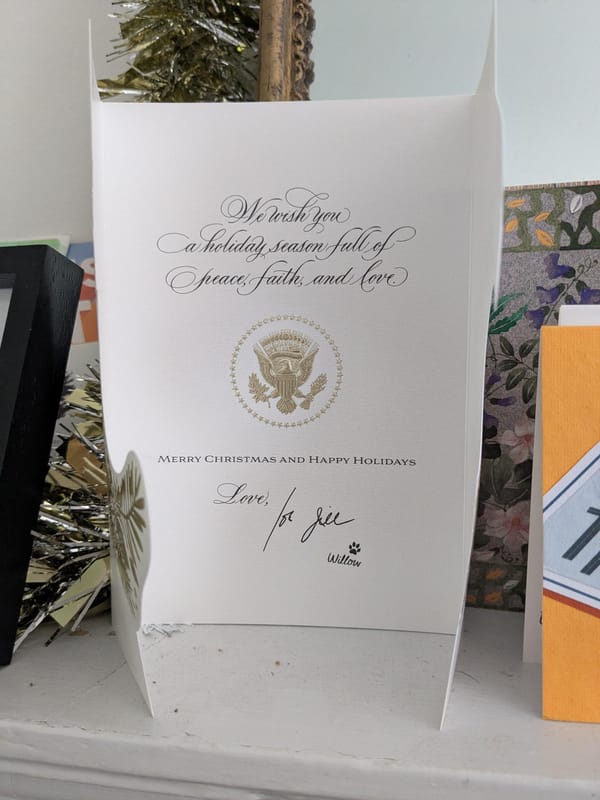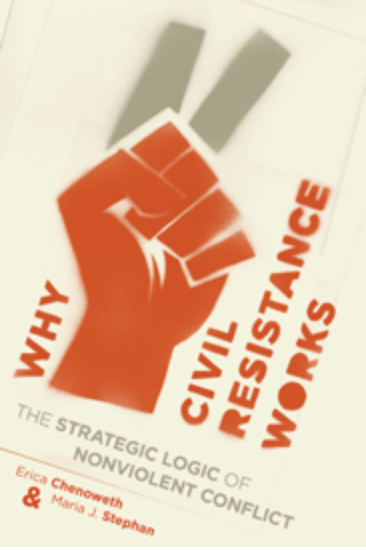36 Questions to Save the Nation: Part 4.

In Part 3 of this miniseries, I talked about how we might use large volumes of volunteers and semi-structured relationship-building interventions to de-radicalize the United States. And it is true that at some point, I am firmly convinced this is necessary. As a nation, we cannot survive when vast portions of our country believe things that are fundamentally untrue – like the 3 in 10 Americans who think that Trump won the 2020 election.
However even at the beginning of considering that goal, I wanted to make something clear: just because we need to do that doesn't mean we need to do it next. Our highest priority right now is not to regrow our muscles – it's to stop the bleeding. That means spending our time, energy, and resources on the people who will be much less difficult to engage: the ones already on our side.
The Second Goal: Us, Now
Imagine the same tools, the same resources, and the same constraints – but a different goal. If we had a million volunteers, a couple million dollars, a really effective relationship-building tool, and one year – what could we do with it? What should we do with it?
My own list looks something like this – sorted in order of immediate urgency.
- Stop the deportations (or, when done without legal justification, kidnappings). The Washington Post had a headline 24 hours ago that read, "Trump Wants to send US Citizens to Foreign Prisons". If ever there were a "slippery slope" towards outright, nightmare, knock-in-the-night fascism – this is it.
- That means, groups hiding, protecting, or defending those being targeted
- Lawsuits and protests against every entity currently undertaking them
- Lawsuits and protests against every entity collaborating with them
- Stop – or better, reverse – the firings (i.e. gutting of the US government). If the people in government were a barrier to the things that are happening, then we need to put them back where they were as fast as humanly possible. This means,
- Again, constant lawsuits – which require the cooperation of the people affected. Lawyers can't make their cases if they don't understand who was fired, or how their being fired is bad for the US. If you're one of those people, tell your story to the people who need to know. If you don't know who those people are, ask me.
- Don't just resign – refuse. If you're standing in front of a critical piece of American infrastructure, don't get out of the way. And if you're removed, for your refusal to do something profoundly illegal – sue. Now there's another lawsuit in our favor. (And for those looking for a more cheerful way of putting this, I think this one tweet said everything my own essay did, better, and in fewer words.)
- Start looking for the places you have power, and what you can do with it.
- Do you have money? Influence? A platform? A shot at an elected office? Spend it, exercise it, shout from it, run for it. Start running for it now.
- And if you don't think you have power, well ...
- Organize.
Which brings us back to the relationships. Though they don't fit neatly in a linear list, because all of the things above are things that work best – or, only work at all – with large groups of people. Which, to bring us back from our digression, is the thing we're talking about creating.
A Sketch of the Conversation
Relationship experts, like Anna Goldfarb – and psychology scholars, like Robert Cialdini – as well as the results of my own dissertation – make it clear that having a goal is an incredibly powerful way of not just accomplishing things, but of building a relationship. So with that, and everything else we've said in mind, here's what I think a core conversation might look like:
- How are you doing? How are you feeling about everything that's going on right now? Have you been affected by it? How?
- What's most important to you, personally, right now? What do you most want to defend, or whom, or what do you most want to build? Where are you pointing, emotionally? And why?
- Do you know how to get there? What do you know, or have, or what can you do, that can get us closer to your goal? (And here's what I have – for your goal.)
- What are you still missing? Resources, knowledge, courage – anything. (And here's what I have that you are missing.)
- (Once both people have taken turns asking and answering all the questions above:) How do you think we could work together, to get closer to the goals we talked about, with the resources we have?
- And who else can we have a conversation with, next?
First, set aside the time to have the conversation, with as many people as you feel comfortable – and you know what, maybe even a few that are beyond your current comfort zone. Then, once you've had that conversation, don't lose the momentum. Check in, even if it's small, daily. Maybe just a text message - that's fine. But I don't say this just because – I say it because that's what works.
If you realize that you're interested in things that somebody else is already working on, then great! Do look around, and see if you can help support an existing effort. But also, don't get too obsessed with a false efficiency. There will never be a duplication of efforts in strengthening relationships. Every single one of them counts – every single one of them is valuable. And there are so many things that nobody is working on, that there's space for the joiners, and the founders.
Who are these people you're talking to? Well right now, it's anyone you can get your hands on. In time, I would love to have a place for people to simply pop open a video chat, and find someone for this purpose. With a million dedicated volunteers, I think a centralized effort could have a truly spectacular, concentrated, effect. A concentrated stream of one million Americans could grind the entire country to a halt, by simply, quietly, moving in and sitting down – if they refused to leave, until law was restored to the federal government. But that's just not where we are – today.
Who Wants to Work on This?
I'm serious – are any of these things that you want to be working on? If you're excited by the ideas of designing the conversation, reaching out to people, building relationships, leveraging them for action, funding, fundraising for, or strategizing the whole thing, then – let's talk. I know there are many groups doing volunteer recruitment, and deep canvassing, and lawsuits, and on and on already, but like I said - this is not about efficiency right now. It's about momentum. Do something! Find more people, through that action.
What's Next
That's the end of this short series, but I know I'll return to the subject in one form or another – maybe, after I've worked on it with you! Coming up, I'm excited to share the recordings of two great conversations I had this week. One is with a career expert on the government workforce, with whom I talk about all of the implications of the current dumpster fire for our ability to function as a nation, and another is with a serial political-tech entrepreneur. With him, we explore this whole large-scale-relationship-building thing in a very different, and very exciting direction. Hope you can tune in!
If you liked that ...
If you made it this far, and you haven't subscribed yet, I'd like to ask as a personal favor that you please subscribe, and share the newsletter with people you know. If I don't know that someone is listening, I have no reason to keep writing – and if I can't pay my rent, I have no ability to keep writing. With my profound gratitude to everyone, both paid and free.
And if we make it to Sunday, I'll see you Sunday.



